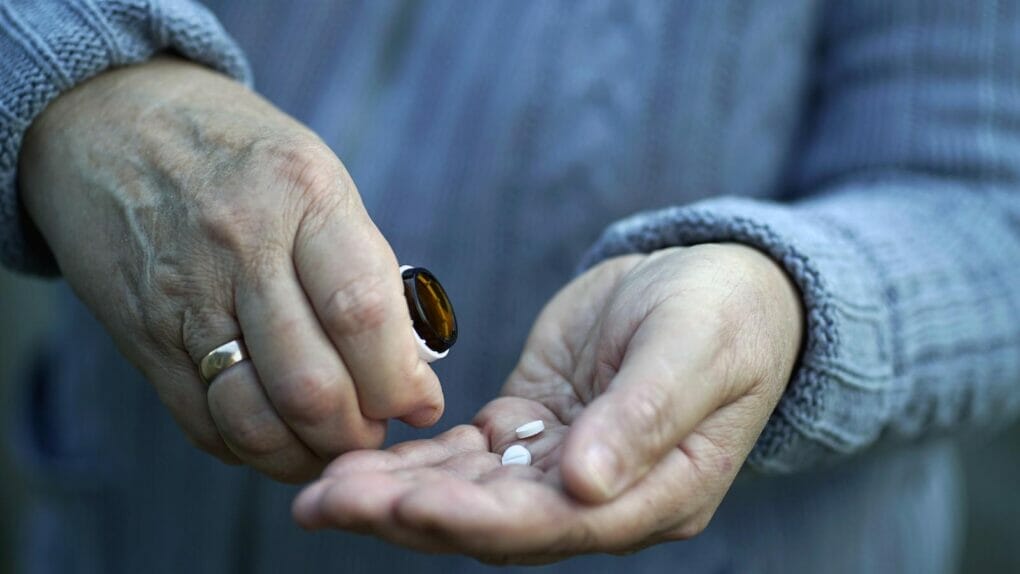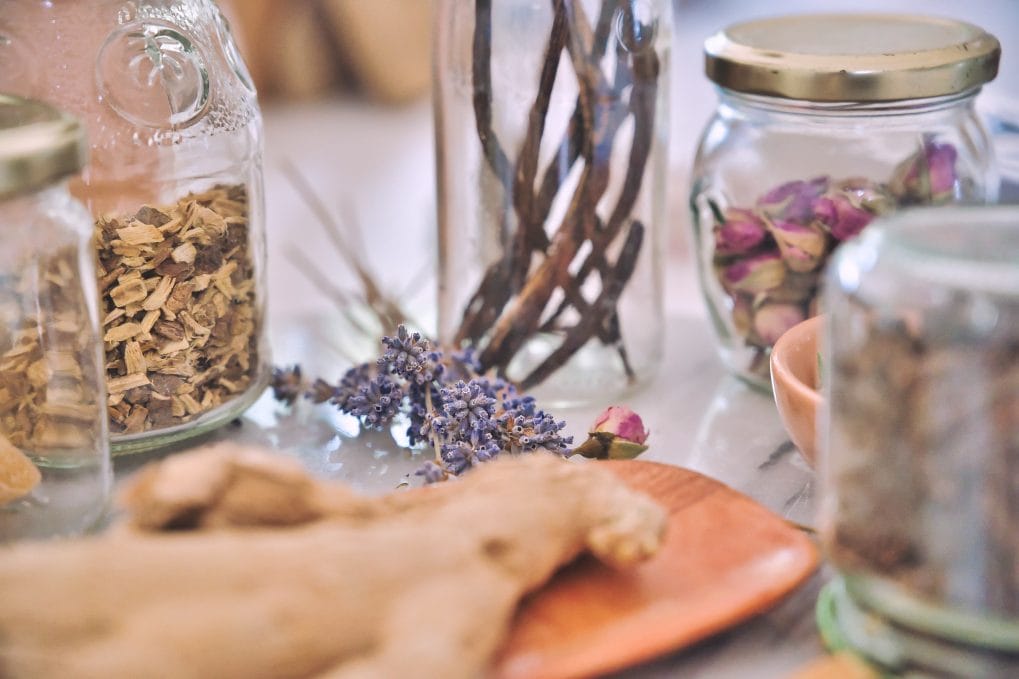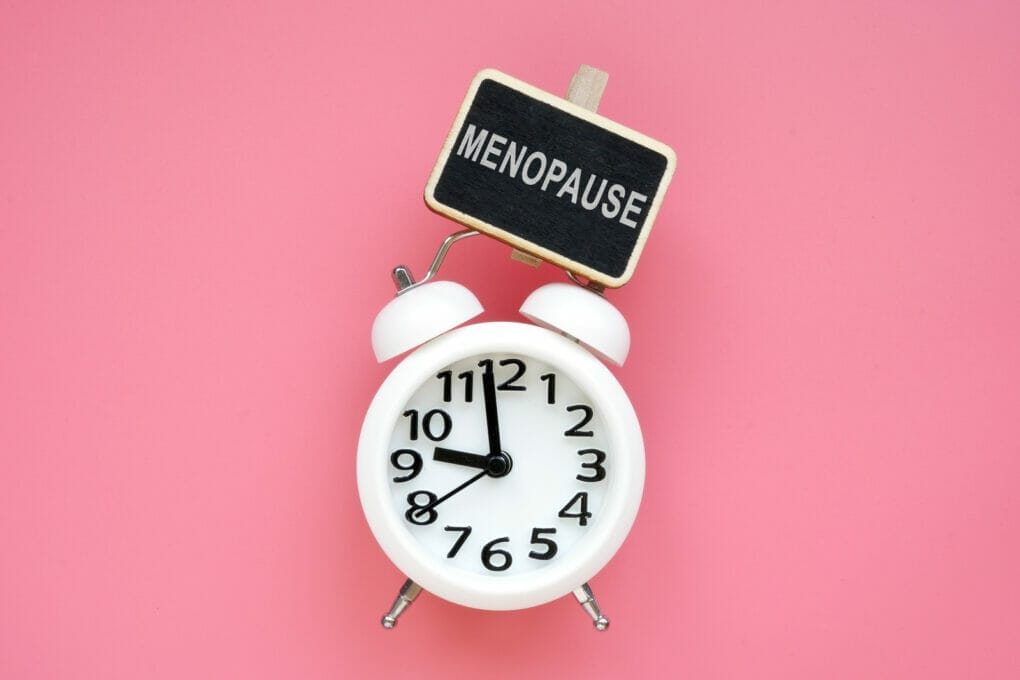Herbal Remedies
Herbal Remedy for Menopause
What exactly is the menopause?
The following article discusses the various stages of menopause and outlines some of the many symptoms of menopause, the possible interventions for menopause, and details some of the more commonly used herbal remedies for menopause that are available.
The menopause, or perimenopause, is a significant shift in female hormones. This article contains information on how to utilise herbs to treat menopausal symptoms. It is only meant to be used as a reference so if you are concerned about your health or are experiencing serious symptoms, you should visit your doctor.
Here’s everything you need to know about the symptoms and what you can do about them.
How do I know if I am menopausal?
Every woman’s menopause journey is unique, however, the usual age range is between 40 and 55 years old.
When you haven’t had a monthly period for 12 months, you’ve officially entered menopause.
You may notice changes in your periods as you approach menopause, as well as some well-known menopause symptoms like hot flashes and night sweats.
Menopause is a normal part of life. Those who smoke tobacco however may experience it sooner.
Other causes include ovary removal surgery or some types of chemotherapy. Menopause is caused by a decline in the ovaries’ production of the hormones estrogen levels and progesterone on a physiological level.
Menopause can be confirmed by detecting hormone levels in the blood or urine, which is usually not necessary. Menopause is the reversal of menarche, the start of a girl’s period.
In most cases, no special treatment is required. However, certain symptoms may lessen with treatment.
When it comes to hot flashes, it’s common advice to avoid smoking, coffee, and alcohol. Sleeping in a cool environment with a fan may also be beneficial.
The first indicator to look for is any anomalies in the menstrual cycle, which could include anything from a shorter or longer cycle, very light or heavy bleeding, or missing a cycle. The majority of women usually begin to develop some of the more frequent range of symptoms such as hot flushes. following this,
If you’re noticing changes, take a deep breath and appreciate that what your body and mind are experiencing is completely normal. For a long time, the body functioned in a specific way, but this has now suddenly altered.
Hormone fluctuations can have an impact on energy, mood, motivation, libido, and emotional health.
Understanding how your body has evolved and what will be most beneficial to you as an individual is the first and most important step. If stress is your primary influencing element, for example, this is where you should spend your efforts.
How long does menopause last?
Menopause occurs when a woman stops having regular periods for 12 months.
Perimenopause occurs before menopause and is characterised by irregular periods, light periods, weight gain, and hair thinning. Perimenopause occurs between two and ten years before menopause.
What causes menopausal symptoms?
When a woman experiences her last period, she enters menopause.
It indicates that there are no longer any follicles (which hold a woman’s eggs) in the ovaries.
During this phase, the ovaries basically shut down and no longer secrete oestrogen and progesterone, a woman’s two primary sex hormones.
Because oestrogen and progesterone are crucial for controlling the menstrual cycle, the menstrual cycle ends when these two hormones are no longer released and there are no follicles (eggs) to release.
The difference in oestrogen and progesterone production has an impact on the way a woman’s body functions. Symptoms will fade over time as the body adjusts, but they can be unpleasant when they are at their worst.
Changes in hormone levels can have an impact on energy, mood, motivation, libido, and emotional wellbeing. The first and most important step is to recognise how your body has transformed and what will be most beneficial to you.
Can Menopause Cause Nausea?
While it is not often recognized, nausea is a possible symptom of menopause.
It is also unknown how many women experience nausea during menopause due to the wide variety of causes.
Some women experience nausea both before and throughout menopause.
While there is no one cause of nausea, it may be associated with hormonal changes, other menopausal symptoms, and specific medications.
It’s also important to consider that symptoms vary considerably between women. If you have nausea on a frequent basis and are in the perimenopause or menopause stage, study more about the various causes so you can discuss it with your healthcare professional.

An introduction to menopause treatment
Many menopausal women might not require treatment because they have few symptoms.
However, if menopausal symptoms are interfering with someone’s quality of life, a variety of natural-based herbal therapies and herbal preparations can be explored.
According to a recent survey, 95% of women would consider alternative therapies such as herbal therapies before hormone therapy (HRT) because they believe they are more natural and are concerned about the health hazards of hormone replacement therapy.
Hot flashes, night sweats, sleep disturbances, sexual dysfunction, mental disorders, weight gain, and cognitive impairments will affect more than 85 percent of these women.
Hot flushes and night sweats
Hot flashes are a frequent symptom of menopause. Some people get them several times a day, while others suffer with them for days at a time. Purchasing a good quality fan, wearing lighter clothing, and keeping the air conditioning at a comfortable temperature can assist. Secondly, there are numerous natural herbal remedies that we discuss later in this article that may aid in the prevention of hot flashes. Scientific evidence is constantly evolving and confirming the efficacy of herbal remedies in the treatment of menopausal symptoms.
Two clinically controlled randomised trials of 5 sessions of hypnotherapy for hot flashes in breast cancer survivors found a clinically significant (69%) reduction in hot flash frequency and severity.
(http://www.ncbi.nlm.nih.gov/)
Lavender essential oil reduced hot flash frequency by 50% in a double-blind 3-month clinical study of 100 women, compared to a 1% reduction in the placebo control group, suggesting a clinically significant difference.
(http://www.ncbi.nlm.nih.gov/)
Over the course of a 3-month trial, a combined formulation of A Sinensis and Matricaria chamomilla showed a clinically substantial improvement in the frequency and intensity of hot flashes (90% -96%) compared to placebo (15% -20%) giving yet more weight and scientific evidence towards more natural approaches. (ncbi.nlm.nih.gov)
The use of hypnosis to treat hot flashes has been proven to result in a clinically significant reduction (50 percent or more) in hot flashes and related symptoms.

Reduced sexual desire – Can menopause affect my sex life?
It is common for women to lose interest in sex around the time of menopause. However, there could be a reason for a woman’s loss of sex drive. A new study published in the Journal of Nutrition showed a link between low estrogen levels and decreased sexual desire in postmenopausal women.
Around the time of menopause, it is normal for women to lose interest in sex. Your body produces less estrogen after menopause. This significant shift in your hormonal balance may have an impact on your libido. Many menopausal women may realise that they are no longer as easily aroused as they once were.
Women may also be less sensitive to touch and other forms of physical contact than they were before menopause.
These experiences, together with other emotional changes you may be going through, might all lead to a decline in your libido. Bear in mind that your body is undergoing significant change during menopause.
All of these issues might create disruption in your life and perhaps even stress in your relationship.
In conjunction with these changes, decreasing estrogen levels in your body might also cause a decrease in blood flow to the vagina which can result in dryness. When there isn’t enough lubricant in the vagina, it might become thin, pallid, and dry resulting in painful intercourse.
Natural ways to help prevent vaginal dryness snd discomfort
Many women report a decrease in their sex life during menopause. From a medical standpoint, this is totally normal and no cause for alarm.
However, intimacy is necessary at all stages of life, and symptoms such as vaginal dryness and vaginal atrophy which is caused when the vaginal tissues begin to thin, aren’t ideal companions for passion.
Weak bones
Vitamin D supplementation has also been linked to a lower incidence of hip fractures in postmenopausal women with weak bones.
Many dairy foods, such as yoghurt, milk, and cheese, are calcium-rich. Kale, collard greens, and spinach are also calcium-rich. Calcium is also found in tofu beans, sardines, and a wide variety of other foods so a diet rich in these foods will help maintain good bone health. which is essential for postmenopausal women.
How does menopause affect my bladder control?
Bladder control disorders (also known as urine incontinence) are unfortunately common among women going through menopause. There are a number of causes for this, including:
Estrogen:
Estrogen is a hormone that is produced by the female body. This hormone has a variety of functions in your body. Estrogen keeps the lining of your bladder and urethra healthy, as well as controlling your period and promoting changes in your body during pregnancy.
Muscles of the pelvic floor:
The pelvic floor muscles support the organs in your pelvis, including your bladder and uterus. These muscles can deteriorate over time. This might happen during pregnancy, childbirth, or as a result of gaining weight. Urinary incontinence can occur when the muscles weaken (leakage).
You could experience any of the following bladder control issues:
Incontinence due to stress (leakage when you sneeze, cough or lift heavy objects).
Strong Urinary urges (leakage because your bladder squeezes at the wrong time).
Urination that hurts (pain or discomfort when you urinate).
Nocturia is a condition in which a person wakes to urinate.
Will I start menopause if I have a hysterectomy?
The uterus is removed during a hysterectomy. After this surgery, you will not have a period.
However, if you retained your ovaries, which is known as an oophorectomy, you may not experience symptoms of menopause immediately. However, If your ovaries are also removed, you will experience menopause symptoms straight away.
Can I get pregnant during menopause?
When you’ve been without a period for a year and are postmenopausal, the probability of conception vanishes. You can, nevertheless, become pregnant throughout the menopause transition (perimenopause). If you don’t want to get pregnant, you should practice safe birth control until you’ve completed menopause. Before you stop using contraception, talk to your doctor.
Because of a loss in fertility, getting pregnant might be difficult for some women in their late 30s and 40s.
If you want to get pregnant, however, there are fertility-enhancing medications and treatments that can help you. Make sure to discuss these choices with your healthcare professional.
Can menopause affect sleep?
Throughout menopause, some women often develop insomnia and difficulty sleeping through the night.
The inability to fall or stay asleep at night is known as insomnia. This could be a natural side effect of menopause or a sign of another menopause symptom. During menopause, hot flashes are a common cause of insomnia.
If hot flashes are keeping you up at night, try the following:
Wearing loose garments at night to keep cool.
Maintaining a well-ventilated bedroom.
Avoid foods and habits that cause you to get hot flashes. For example, If spicy foods are causing you to experience hot flashes then don’t consume anything spicy before going to bed.
Can menopause cause depression?
During menopause, your body experiences a lot of changes. Your hormone levels are wildly fluctuating, you may be having trouble getting adequate sleep due to hot flashes, and you may also be experiencing mood swings. Anxiety and fear may also be present at this time. All of these things can contribute to depression and other mental health issues.
Speak with your GP, Alternative Practitioner or Health Care Providers if you experience any of the signs of depression.
During your consultation, your practitioner will discuss several treatment options with you and ensure that you don’t have any medical condition that is causing your depression as depression can occasionally be caused by thyroid issues.
Are there any other emotional changes that can happen during menopause?
Menopause can lead to a lack of motivation and difficulty concentrating, as well as anxiety, depression, mood swings, tension, aggressiveness, and irritability.
All of these emotional shifts can occur before or after menopause. You’ve probably encountered a few of them in your life. It’s possible to manage emotional changes during menopause, but it’s not easy.
It may be reassuring to know that the feeling you’re having has a name. When dealing with these emotional changes during menopause, online and offline menopause support groups and counseling with a menopause expert can be helpful.
Weight Gain During Menopause
Weight gain is a common side effect of menopause. Women may experience this weight gain at different times in their menopausal transition. Some women only experience a few pounds of weight gain while others may struggle to maintain a healthy weight.
Achieve and Maintain a Healthy Weight:
It’s quite normal to gain weight during menopause. Changes in hormones, ageing, lifestyle, and genetics can all contribute to this.
One study of 17,473 postmenopausal women found that those who lost at least 10 lbs (4.5 kg) of weight or 10% of their body weight over a year were more likely to eliminate hot flashes and night sweats ( 5 Trusted Source Here’s more info about losing weight during menopause Achieving and maintaining a healthy weight may help alleviate menopause symptoms and help prevent disease. 3. (NCBI)
Does menopause affect your heart?
Oestrogen is a hormone produced naturally in a woman’s body that aids in the regulation of her menstrual cycle. It may provide some protection from coronary artery disease, thus also lowering the risk of a heart attack. It lowers the danger of fatty plaques forming inside the arterial walls by assisting in the regulation of cholesterol levels.
Because of excessive blood pressure, our blood vessels can stiffen as we age. This is a factor that has been linked to heart attacks and strokes.
A woman’s body typically generates less oestrogen both during and after menopause than it did previously. This increases the potential for coronary artery narrowing, where previously it preserved the arterial wall lining and reduced plaque build-up. This raises your chances of getting coronary heart disease and also increases the risk of heart attacks or strokes.

Herbal Remedy For Menopause and Hot Flashes
Many complementary and alternative treatments for menopause symptoms are available over the counter and online, with various formulations of herbal products, natural products and/or nutrients. Because of the combination of herbs used, as well as the quality or amount of herbs used, the efficacy of these remedies can differ tremendously.
Consult a health practitioner trained in herbal medicine use, such as a herbalist/naturopath or a Chinese medicine practitioner, for advice on these herbal products.
The following list of the more common herbal remedies which may be useful in treating the symptoms of menopause is intended only as a guide and your practitioner can discuss these and other natural products which may be suitable for your individual symptoms.
Agnus castus for PMS
During perimenopause, when major hormonal changes occur, Agnus castus is the herbal medication of choice for treating the symptoms of PMS.
Period discomfort, breast tenderness, mood disorders, and irritability are common PMS symptoms that develop a week or so before each monthly period, gradually develop, and then disappear once menstrual bleeding begins. The pattern and nature of the symptoms are similar to those that would be seen in a younger lady.
Vitex Agnus castus, or Chasteberry, is another name for Agnus catus. Extracts made from the plant’s berries have a long history of being used to treat menstruation symptoms in women who are still on their monthly cycle. Other prescribed hormonal treatments, such as HRT or the oral contraceptive pill, should not be taken at the same time as the herb.
Devil’s Claw for painful joints
The plant produces a claw-like fruit, hence the name Devil’s Claw. The root of Devil’s Claw (Harpagophytum procumbens) is utilised medicinally, rather than the fruit.
The Kalahari desert is one of the only places where the plant may be found.It’s a popular herbal treatment for joint and muscular pain, and also back pain.
It’s perfect for women struggling with menopausal muscle aches and joint problems who feel that Arnica doesn’t provide enough pain relief for their aching muscles and stiff joints.
Ginkgo Biloba
Ginkgo biloba is one of the most studied herbs, and we know that it aids regular blood circulation, particularly in the brain. This aids focus and memory – in fact, one of Ginkgo’s Chinese names is “The Memory Tree.”
Ginseng: Mood Booster
Panax quinquefolius or Ginseng Panax is a common Herbal Remedy for Menopause and has been demonstrated in studies to aid with menopausal symptoms like mood disorders and sleep difficulties, as well as overall well-being. However, it has not yet been proven to be effective in the treatment of hot flashes.
Several studies have revealed evidence that different forms of ginseng may assist increase menopause quality of life. Ginseng has also been shown to aid women suffering from disturbed sleep and improve emotional wellbeing.
Red Clover Leaf Extract
Red clover reduces triglycerides and may raise HDL cholesterol levels.
It’s possible that these plant estrogens assist in protecting your heart when your own levels of estrogen drop.
Red Sage for menopausal hot flushes and night sweats
Salvia officinalis, or sage, has long been used as a remedy for increased sweating throughout menopause.
Sage is high in essential oils, which is why it has such a distinct aroma. The therapeutic function of the plant is also enhanced by these oils. Sage extracts are already well-known for their ability to reduce sweats and hot flushes. experienced during menopause.
Dong quai
Another herb that is frequently used in conjunction with other herbs to manage women’s reproductive issues is Dong Quai. Dong Quai is a traditional Chinese herb that is most often used in combination with other herbs to treat female reproductive problems.
Dong Quai is a Chinese herb that is thought to balance the yin and yang energies, tonify qi, invigorate the blood and relieve pain.
It is also known to have antioxidant properties and there is increasing research into it’s anti-cancer properties as well. It is also known as a powerful antioxidant and helps to fight free radicals that damage our cells.
Dong Quai is commonly recommended for women going through menopause due to its estrogenic properties. Taking Dong Quai regularly can improve blood flow and reduce inflammation. It can also uplift your mood, so it is often found in the form of tea for its calming and anti-depressant effects.
Black Cohosh
While black cohosh may not be as efficient as hormone replacement therapy (HRT) for treating hot flashes it brings relief with fewer adverse effects.
The plant is also used to treat mood swings and sleep disorders. It not only helps women fall asleep, but it can also help them remain asleep. Two recent studies support the use of Black Cohosh as a sleep aid. The most effective dose utilised in the trials is 40mg twice a day in the form of a capsule or tablet. This dose is quite widely available in a wide range of herbal supplements.
Magnesium
According to naturopath Carolyn Dean, author of Menopause Naturally, more than 75% of women are lacking in this mineral, which due to contemporary farming practices and food processing has now been depleted in our soils and foods.
Because magnesium, which is commonly referred to as the “anti-stress, anti-anxiety mineral,” has been proven to lessen hot flashes and increase serotonin levels thus enhancing mood, (Magnesium also aids in the formation and maintenance of strong bones, as well as the more efficient absorption of calcium by your bones.) the menopause may be a good time to start with natural supplements such as Magnesium & Calcium supplements as this combination supplement also includes calcium which strengthens bones and can therefore help reduce bone weakness which is a serious issue in postmenopausal women.
Numerous clinical trials have now demonstrated its efficacy in promoting deeper sleep.
Oily fish
A high diet of oily fish like sardines or salmon appears to slow the progression of menopause by 3.3 years per serving per day, according to a study of 914 women published in the Journal of Epidemiology and Community Health.
Similarly, a balanced diet rich in legumes slowed the start of menopause by around a year for each portion consumed daily.
Foods that should be avoided to slow the onset of menopause include refined pasta and rice which have been shown to result in menopause occurring on average 1.5 years earlier.
Due to a faster-paced way of life it is difficult to get the right amount of the oils from our diet so good quality Omega 3,6,9 Oil Capsules can help.
Are herbal remedies Safe?
Herbal remedies are any plant-based mixtures that are used to treat or prevent disease. Many herbal remedies have been shown to be not only safe but effective, in fact, many are now considered more effective than modern drugs. Before considering adding a herbal remedy to your current health plan talk it over with your Doctor, Health Care Providers or discuss your current treatment with a Registered Herbalist. Your Doctor, Health Care Providers, or Registered Herbalist may have experience with using such remedies and be able to offer additional insight into the use of a particular herb. Finally, before trying a home remedy, be sure to read the ingredients carefully.

How Will I Know When I Am Postmenopausal?
When a woman has gone a year without having her period, she is called postmenopausal. Another way to tell if you’re approaching menopause is to have your GP or Health Care Providers measure your follicle stimulating hormone (FSH) level. The pituitary gland produces the hormone FSH. As your ovaries begin to shut down, your FSH levels will rise substantially. These levels can be easily evaluated with a single blood test but because FSH levels can fluctuate dramatically during perimenopause, the only way to be sure you’re postmenopausal is to go a year without having a period.
What Changes Can I Expect During Postmenopause?
You may regain your vitality after menopause, but you may also be at a higher risk for certain diseases.
Some of the problems linked to menopause may be reduced with medication and lifestyle improvements.
Because every woman’s risk is different, speak with your GP, Herbalist, or Health Care Providers about what steps you may take to lower yours.
It’s usually at this time that you can tell yourself, that it’s finally over and you can now get out there and live your best and healthiest life!
Literature Search
An electronic search of the databases MEDLINEplus, HealthSource: Nursing/Academic, PsycINFO, PsycARTICLES, PubMed, and Cumulative Index of Nursing and Allied Health Literature (CINAHL) as well as a hand search of references of relevant publications yielded literature sources. Menopause, menopausal symptoms, and complementary and alternative medicine were among the search words used.
Additionally, various complementary and alternative medicine treatments, as well as menopausal symptoms, were investigated. To improve results, the search phrases were tailored to each database.

